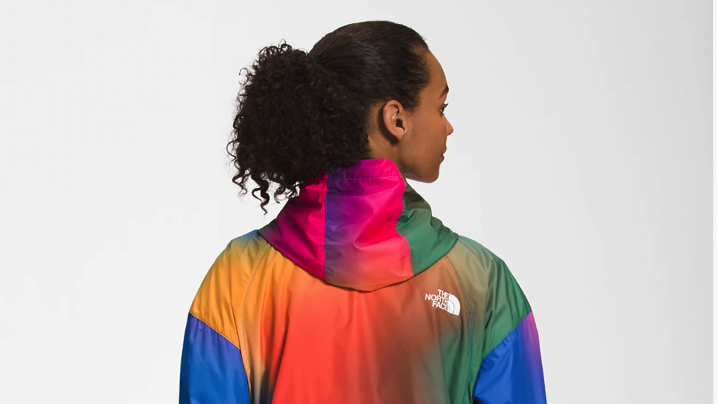Retailers are increasingly working with the LGBTQIA+ community. However, when faced with conservative backlash, their response can be a crucial test of their brand values and principles, as well as whether their commitment goes beyond just pinkwashing. In May, Target Corporation, a US-based discount department store chain, scaled back its collection for Pride Month, with the retailer pulling products and merchandise, and citing threats to staff and customer safety. Meanwhile, in April, Bu
il, Bud Light backtracked from a collaboration with transgender actor and influencer Dylan Mulvaney following public pressure and a drop in sales. Bud Light’s parent company Anheuser-Busch placed marketing executives on leave.
As a consequence, Bud Light’s Corporate Equality Index score – which measures companies’ policies for lesbian, gay, bisexual, transgender and queer employees – was suspended. Another brand which has faced backlash for its Pride campaign in recent months includes Starbucks, which was subsequently accused of taking down Pride decorations.
Outdoor clothing and gear company The North Face also faced criticism from right wing groups for its Summer of Pride advertising campaign. In its second year, the campaign features drag performer and LGBTQIA+ activist Pattie Gonia, and encourages people to explore nature with hiking tours, workshops, activities and panels.
But despite public pressure, The North Face’s parent company VF Corporation seemingly took a different tack to Target, Bud Light and Starbucks, and affirmed its commitment to the campaign.
“We are honoured and grateful to support partners like Pattie Gonia who help make this vision a reality,” a spokesperson said. “The Summer of Pride series has helped foster a more accessible and welcoming environment for individuals from all backgrounds to gather and experience the joy of the outdoors.”
Creating community and belonging in the outdoors is a core part of the brand’s values and is needed now more than ever, the spokesperson said. “We stand with those who support our vision for a more inclusive outdoor industry.”
More inclusive way of life
Interdisciplinary research fellow at the University of New South Wales and co-director of Queer Agency Dr Brooke Brady told Inside Retail that brands that espouse a commitment to equality must be willing to uphold that commitment, even when faced with disagreement.
This follows a perception that many brands engage in “pinkwashing” – which involves participating in Pride events and leveraging Pride activations for short-term gain, without maintaining long-term commitments to the LGBTQIA+ community.
“It is always fantastic to see brands stand-up and affirm their commitment to supporting safe, positive, and inclusive environments,” Brady said. “However, it can be devastating when brands withdraw or reduce that support under pressure from a small number of individuals who fear a more inclusive way of life.”
By defending its Summer of Pride campaign, Brady believes that The North Face demonstrated to the wider community that it is committed to a more just and welcoming way of life.
“This simple act of continuing their Summer of Pride campaign will certainly have positive repercussions for the perception of The North Face brand within LGBTIQA+ communities,” she said.
“Affirming their commitment to equality is likely to positively impact the morale of their team and may help to attract more diverse talent in the future.”
Standing up to hate
Dr Emily Brayshaw, an honorary research fellow at the University of Technology Sydney, told Inside Retail that the Summer of Pride was a smart and savvy campaign that would increase brand awareness, bring new clients in, and build brand loyalty.
She said that customers want to support brands that are aligned with their values and look favourably on businesses that are not swayed by public pressure to compromise their values.
“The North Face response showed that they were not going to back down in the face of what is essentially bullying,” Brayshaw said.
“The brand will also have LGBTQIA+ staff, who obviously want to feel secure and as part of the team. It’s not just about selling products, and [at] the risk of sounding glib, it boils down to the fact that haters are going to hate. In the end – who wants to be a part of that.”
Brayshaw explained that backlash to marketing and advertising campaigns is not a recent phenomenon. She pointed to a Cheerios TV advertisement in 2013 featuring an interracial family, which led to a large volume of racist comments.
However, she noted that retail brands are in a powerful position and can be a force for positive change.
“Social media can be incredibly powerful. For instance, a Tweet or Instagram post from a celebrity celebrating The North Face can bring more customers in, and build brand awareness. This can lead to longer term sales,” Brayshaw said.
“While someone might not be in the market for a puffer jacket or hiking gear now, they will remember that their favourite pop star mentioned The North Face, and that the brand [stood by them].”
She added that The North Face also sent an important message about resilience in its response.
“For a kid living in a conservative area who might be Gay – seeing a brand [like The North Face] standing up to the backlash can give them courage, and help them feel a bit of love, which is really important.”

